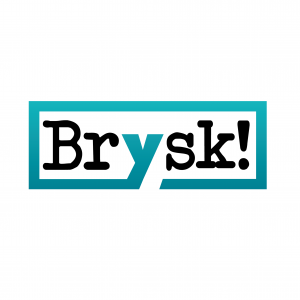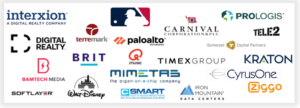Our Services
Brysk is specialized in managing major (mission critical) projects. Our project managers have a strong focus on the overall process to deliver high standards. The client’s CAPEX business cases of our projects is between EUR 10M to EUR 1,500M. We provide a broad spectrum of capabilities whether it is strategy, programming, project management or cost consultancy from finding a location until Practical Completion.
- Project appraisal (site selection / strategic decision-making)
- Create market opportunities to select potential sites and finding potentially interested parties.
- Acquiring the freehold of a site or leasing it to develop a Data Centre facility.
- Concept and design
- Leadership, management and guidance to Design Team (Due Dilligence / feasibility).
- Conduct meetings with power and utilities provider and submit enquiries for feasibility and cost.
- Planning / Programme / Costs
- Leadership, management and guidance to Permit Team (incl re-zoning).
- Understanding of key risks, e.g. emissions (noise/ nox), zoning restrictions, building height, power usage, water usage.
- Produce and verify a high level program and project initiation budget.
- Project supervision
- Strategic partner to govern the project controls in each phase of the project (acq, development, construction, completion).
- Project management, construction management and contract administration services during construction.
Experience and Team Benefits
We have a strong track record leading successful project delivery and motivating teams and individuals to deliver. Our (pre-)construction data centre portfolio of projects completed exceeds >1,500MW and a value of EUR >14.0 billion in:
- Austria, Belgium, Croatia, Denmark, France, Germany, Greece, Italy, Netherlands, Spain and Switzerland
Brysk’s (pre-)construction approach
Brysk’s (pre-)construction approach focuses on establishing a well-defined roadmap for efficient project execution. Our key activities:
- Project Sequencing: We’ll outline a logical sequence of activities, from planning approvals to construction and handover. This ensures a smooth transition from pre-construction to later stages.
- Core Activity Identification: We’ll identify and prioritize critical pre-construction tasks to optimize resource allocation and timeline management of the entire team.
- Team Formation: We’ll collaborate with you to select and appoint a qualified team, including internal staff, consultants (MEP and CSA), and other necessary specialists. This team will be clearly defined in a client-side organizational chart for both pre-construction and construction phases.
- Responsibility Matrix: A clear responsibility matrix will be established, outlining roles and accountabilities for your team, the general contractor, OFCI vendors, and the professional team.
- Kick-Off Meeting: We’ll initiate the project with a kick-off meeting to introduce key stakeholders, establish communication channels, and align expectations.
- Project Documentation: We’ll request to develop essential documents like the project brief (basis of design), major plant equipment list, and key building metrics (e.g., white space utilization) to guide the design and construction process.
- Strategic Program Development: A comprehensive strategic program will be established, outlining project milestones, timelines, and dependencies for achieving practical completion / ready for service dates.
- Design Management: We’ll implement a robust design management process to ensure efficient design review and approval, minimizing delays. Incorporation of OFCI vendors details is critical in stage 4 (e.g. support steel frames, opes, coordition shell design, internal routing, plant replacement confirmation).
- Meeting Schedule and Communication: We’ll establish a structured meeting schedule to facilitate clear and consistent communication between all stakeholders.
- Project Control and Assurance: Our local project management team will implement a comprehensive project control system, including:
- Governance points and page turn sessions with relevant stakeholders to ensure transparency and address critical project issues.
- Weekly calls with the local professional team (supplemented by bi-weekly on-site visits) to maintain consistent communication and progress monitoring.
- Weekly reviews of the strategic program, financial tracking sheet, project progress reports, and key project documents.
- Bi-weekly site visits to assess progress and identify potential challenges.
- Monthly steering committee meetings to provide project updates, address concerns, and ensure alignment with overall goals.
Key differentiating factors
Brysk has several key differentiating factors that make it an attractive partner for data center players in the European Market:
1.Strategic PM includes Project Controls / Governance
- Brysk’s approach to project management extends beyond the traditional scope of project delivery to include a strategic focus on aligning project objectives with business goals.
- This holistic approach helps Brysk to deliver projects that not only meet the immediate needs of its clients but also contribute to their long-term success.
2.Dedicated Expertise
- Brysk’s team of experienced project managers is deeply knowledgeable about the specific challenges and requirements of data center projects.
- This expertise enables Brysk to provide tailored solutions that address the unique needs of each client.
“Brysk’s unique blend of strategic project management and deep industry expertise sets us apart as the ideal partner for European data center projects.”
Lessons learned
Based on our extensive experience in the Pre-Construction period, we have identified key areas crucial for project success. We’ll leverage these lessons learned to optimize your data center project:
Financial Tracking:
- Implement a robust financial tracking system from the outset, allowing for real-time cost monitoring and adherence to budgets.
- Regularly review and update cost estimates to reflect changes in scope or market conditions.
- Utilize project management software to track expenses and identify potential cost overruns early.
Project Leadership:
- Provide strong and consistent project leadership to motivate the team, address challenges promptly, and maintain focus on project goals.
- Establish clear communication channels and regular reporting procedures to keep all stakeholders informed.
- Proactively manage risks and implement mitigation strategies to minimize disruptions.
Clear Employer Requirements:
- Work closely with the client to define clear and unambiguous employer requirements for selecting a general contractor.
- Ensure that all requirements are documented and communicated to potential contractors in a timely manner.
- Evaluate contractor bids based on a comprehensive set of criteria, including experience, qualifications, and pricing.
Defined Responsibility Matrix:
- Establish a well-defined responsibility matrix to avoid confusion and ensure accountability across all stakeholders.
- Clearly outline the roles and responsibilities, including the client, general contractor, OFCI vendors and consultants’ team.
- Regularly review and update the responsibility matrix as project scope or team composition changes.
Procurement Involvement:
- Integrate procurement early in the process to ensure timely delivery of materials and equipment.
- Develop a procurement plan that identifies procurement needs, timelines, and budget constraints.
- Utilize appropriate procurement methods, such as competitive bidding or negotiated contracts, to secure the best value for money.
Legal Support:
- Provide project management support to facilitate the development of harmonized contracts that mitigate legal risks.
- Work closely with the client’s legal team to review and negotiate contracts with contractors, consultants, and other vendors.
- Ensure that all contracts are compliant with applicable laws and regulations.
Constructability Review:
- Conduct constructability reviews to identify and address potential construction challenges early in the design phase.
- Involve project managers, engineers, contractors, and other stakeholders in the review process.
- Implement design changes or construction techniques to minimize risks and optimize project outcomes.
Local Operations Team Integration:
- Involve the client’s local operations team at key stages of the project to ensure alignment and a smooth transition to operation.
- Develop handover documentation that clearly outlines operational requirements and responsibilities.
Clear Tender Package:
- Develop a clear and comprehensive construction tender package to attract qualified bids and avoid misunderstandings.
- Include all relevant project information, such as scope of work, drawings, specifications, and performance requirements.
- Provide clear instructions for submitting bids and evaluating proposals.
Project Auditability:
- Maintain comprehensive project documentation to ensure transparency and facilitate audits.
- Regularly review and update project records to ensure accuracy and completeness.
- Cooperate with auditors and provide them with timely access to project information.





